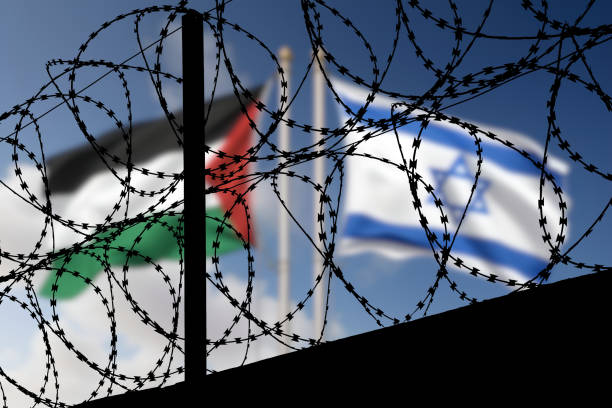The Hamas assault of October 7 and Israel’s military response with total disregard for civilian life have both drawn harsh criticism worldwide, most notably by the UN Secretary-General Guterres. It has inevitably led to questions about the future of the Palestinian problem. Unfortunately, Secretary Blinken’s recent trip to the region has not accomplished much other than diverting some attention from IDF’s operations in Gaza. Now, even the Western partners of Israel are feeling compelled to balance their support for Tel Aviv with calls for “cease-fires”. In recent days, Israel declared four-hour pauses to allow the Gazans to escape the fighting in the north and thus contain growing international reaction to the humanitarian catastrophe in the Strip, and to gain time to fight Hamas to the bitter end, at least in northern Gaza.
For the international community, the immediate aim is to end the war sooner than later and to prevent it from turning into a wider regional conflict. As for the future, the long-forgotten “two-state solution” is once again on the agenda. The G7 Foreign ministers meeting in Japan last week, underscored that a two-state solution, which envisions Israel and a viable Palestinian state living side by side in peace, security, and mutual recognition, remains the only path to a just, lasting, and secure peace. The leaders of the Organization of Islamic Cooperation (OIC) and the League of Arab States have also emphasized the immediate need for the international community to launch a serious peace process to establish a two-state solution.[i] However, this does not mean that getting there would be an easy task. Even if there is a will, reviving the project and carrying it to conclusion will take years and years. Some believe that the two-state solution is a chimera and that it would be shelved again once the fighting is over. Because,
- The last episode of fighting has only deepened the unfortunate mutual distrust and hatred between the two peoples. Hamas massacred civilians on October 7. Israel told the Gazans to move to the south yet bombed over and over again even targets there causing mounting civilian deaths. Moreover, 150 Palestinians have been killed in the Israeli-occupied West Bank since the October 7 Hamas attack, according to the United Nations, making it one of the deadliest periods there in recent memory. None of this bodes well for the future. But all this may have convinced many Israelis that the current picture is no longer tenable.
- Political maps show the West Bank as the home of the Palestinians. However, maps do not exactly correspond to reality. In recent years, the expansion of Israeli settlements has considerably shrunk the area where the Palestinian flag might someday fly. Moreover, the G7 Japan 2023 Foreign Ministers’ Statement said, “The rise in extremist settler violence committed against Palestinians is unacceptable, undermines security in the West Bank, and threatens prospects for a lasting peace.”
- During his last trip to the region, Secretary Blinken said “Israel cannot reassume control and responsibility for Gaza.” “We’re having active discussions with our Israeli counterparts about what post-conflict Gaza looks like,” John Kirby, the White House national security spokesman, told reporters. “The president maintains his position that reoccupation by Israeli forces is not the right thing to do.” However, Prime Minister Netanyahu determinedly says that the IDF would indefinitely be in charge of the Strip’s security.
- Palestinian leadership remains divided. Secretary Blinken has told a Senate hearing that “an effective and revitalized” Palestinian Authority would be the best-placed entity to administer Gaza and eventually be responsible for its security. But the group has long been seen as out of touch and irrelevant by many Palestinians in the West Bank and Gaza.
The first step for the Palestinian side would be to bring together a new, strong, enlightened, forward-looking, broad-minded, and realistic leadership that would inspire confidence not only among Palestinians but also in Israel and the world at large. This not going to be an easy task considering the divisions between different Palestinian groups. But this would be the last, perhaps the greatest duty of the Palestinian Authority President Mahmoud Abbas to fulfill before his retirement. Hamas leadership would have to admit that their members taking a prominent position in the emerging leadership is out of the question. They are blamed for the October 7 massacre and the taking of more than two hundred hostages. But if the Gaza war were to set off a political process between Tel Aviv and a new Palestinian leadership, this, like it or not, would be their achievement.
Western countries have supplied Ukraine with billions and billions of dollars worth of military assistance. They may now consider making a generous humanitarian contribution to rebuilding the devastated Gaza Strip. And the UN should assume a role in meeting Israel’s security concerns in whatever is left of Gaza.
But the biggest task of Washington and its European partners would be to convince the Israeli government that the launching of a process toward the two-state solution is the ultimate guarantee of lasting peace. With Mr. Netanyahu at the helm, this appears to be mission impossible. Thus, it is for the people of Israel and moderate leaders to take the lead. This is what Thomas L. Friedman said in a recent article: “The sooner Israel replaces Netanyahu and his far-right allies with a true center-left-center-right national unity government, the better chance it has to hold together during what is going to be a hellish war and aftermath.”[ii] And on Sunday Mr. Netanyahu said, “No amount of international pressure will change our belief in the rightness of our way and our right to defend ourselves.”[iii]
Last week there was news on social media that Mr. Netanyahu intends to send the people of Gaza to Arab countries and Türkiye, the latter opening its doors to Gazans.
“The report shared on some social media citing Netanyahu’s statement — we have agreed with Erdogan that 1 million Palestinians will become Turkish citizens and live in Turkey in exchange for two billion dollars — is not true. There were no negotiations by our President Recep Tayyip Erdogan, and such a statement by Israeli Prime Minister Benjamin Netanyahu does not exist. These claims are completely fabricated,” Ankara’s Center for Combating Disinformation said in a statement.
This might be wishful thinking on the part of Prime Minister Netanyahu, but regardless of the aspirations of the Gazans for a better life, total evacuation of Gaza will be an act of treason for them and the Palestinian cause. And Türkiye, already home to four million refugees, mostly Syrians, is in no position to receive more.
——————————————————————————————
[i] https://www.arabnews.com/node/2407236/middle-east
[ii] https://www.nytimes.com/2023/11/09/opinion/israel-hamas-war.html?campaign_id=225&emc=edit_nttf_20231109&instance_id=107296&nl=thomas-friedman®i_id=60473709&segment_id=149562&te=1&user_id=6e50439e867e4155600e5ebabac2aa22
[iii] https://www.jpost.com/israel-news/benjamin-netanyahu/article-772829










